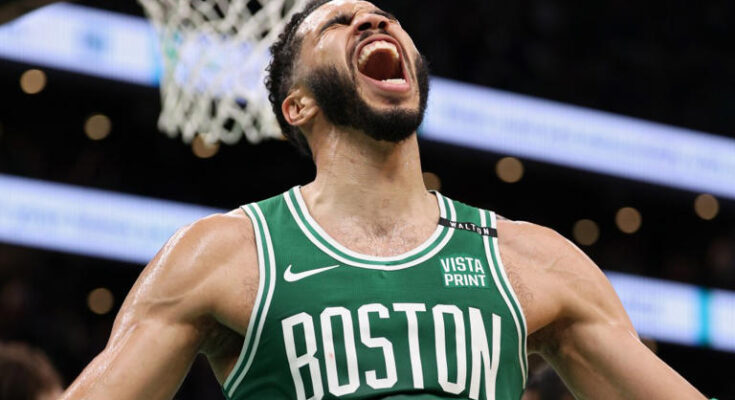Boston Celtics’ Repeat Hopes Derailed by Key Injuries and Playoff Collapse Despite Stellar 61‑Win Regular Season Performance
The Boston Celtics began the 2024‑25 NBA season with the burden and promise of being defending champions, having claimed their 18th title in 2024. With a championship pedigree, a deep roster, and a coach still in the early stages of a remarkable ascent, the team entered the season brimming with confidence and belief in their ability to repeat. They had not secured back‑to‑back titles since the late 1960s—which made their quest both rare and tantalizing. Expectations were sky‑high, as fans and analysts alike expected nothing less than another Finals appearance. Yet, despite delivering one of their strongest regular seasons in franchise history, the Celtics’ march toward a repeat was halted abruptly, victim to a heartbreaking synthesis of injuries, blown leads, and a ruthless opponent in the playoffs.
From the outset, Boston looked every bit the reigning champions. They rolled through the regular season with staggering efficiency, tallying 61 wins against just 21 losses, finishing first in the Atlantic Division and second overall in the Eastern Conference. That 61‑win tally marked their second consecutive 60‑win campaign—something the franchise had only achieved three times before, back in the late 2000s. Their dominance extended to the road, where they notched 33 wins, tying for the second‑most road victories in NBA history—only one fewer than the legendary 2015‑16 Warriors.
Statistically, the team was elite on both ends of the court. Their offensive rating—119.5—ranked second in the league, while defensively they were among the best, allowing just over 107 points per game. Their scoring differential stood at an impressive +9.1, one of the highest by a defending champion in recent memory. They broke league records with their volume and accuracy from three: an NBA record for 1,457 made threes, 17.8 made threes per game, and 48.2 attempts per game . Remarkably, three players—Derrick White (265), Payton Pritchard (255), and Jayson Tatum (250)—each made over 250 threes, forming the first trio in NBA history to do so .
Perhaps most importantly were the individual performances and depth contributions that sustained the team all season. Jayson Tatum delivered a superstar all‑around display, averaging approximately 26.8 points, 8.7 rebounds, and 6.0 assists per game, with improvements in facilitation evident in his career‑high assists average. Payton Pritchard emerged as a Sixth Man of the Year, showcasing shooting, scoring, and energy off the bench that provided a vital edge. Derrick White, too, put together a great season, even breaking a franchise record for made threes. Coach Joe Mazzulla’s role cannot be understated—he solidified himself as one of the league’s brightest young coaches and led Boston to over 60 wins despite an evolving roster.
As the playoffs began, expectations only heightened. Boston dispatched the Orlando Magic in a swift first‑round 4–1 series victory, as their depth and balance carried them through. But in the Eastern Conference Semifinals, the series began ominously. In Game 4 against the New York Knicks, Jayson Tatum suffered a sudden and devastating Achilles tendon rupture—an injury that not only ended his season but shattered the Celtics’ championship hopes.
Alongside Tatum’s loss, other key players were battling through their own ailments. Jaylen Brown, last season’s Finals MVP, was coping with a nagging knee issue, while Kristaps Porziņģis had been slowed by illness and ankle concerns throughout the season and into the playoffs. The team also suffered from a spree of blown leads—surrendering 20‑point advantages in Games 1 and 2—signaling that mental resilience had cracked at the worst possible time. In Game 6, they suffered a blowout defeat fueled by a 41‑point deficit, capping a painful collapse.
Despite fighting courageously, the Celtics fell in the series 4–2. That marked the first time they had been eliminated before the conference finals since 2021, and continued an NBA‑wide trend: the defending champion had not repeated in six straight years.
In the wake of the loss, the organization entered a state of transition. With Tatum facing 10‑12 months of recovery, key veterans like Jrue Holiday and Kristaps Porziņģis were traded, and Al Horford was not expected to return. Yet, amid the uncertainty, the Celtics reaffirmed their confidence in Mazzulla, extending his contract—a sign of steadfast support for the coaching blueprint they’d built. President Rich Gotham emphasized that despite Tatum’s absence, the team remained committed to competing and believed other players would step up. The front office began pivoting toward a younger, more adaptable roster aiming to weather the upcoming “gap year,” while maintaining optimism about the future.
This narrative reveals a journey from confident dynasty-contender to wounded and incomplete contender. The Celtics delivered dominance and depth, yet the fragility that plagues every NBA title-defense—injuries at critical junctures and the unforgiving nature of playoff pressure—exposed the thin margin between glory and heartbreak. Their regular season proved they were among the league’s elite, but the postseason showed that in the NBA, nothing can be taken for granted—even for champions. With Mazzulla at the helm, a retooled roster, and core talent poised to return, Boston now enters a new chapter—a transitional season rich in challenges but carrying the seeds of future contention.



